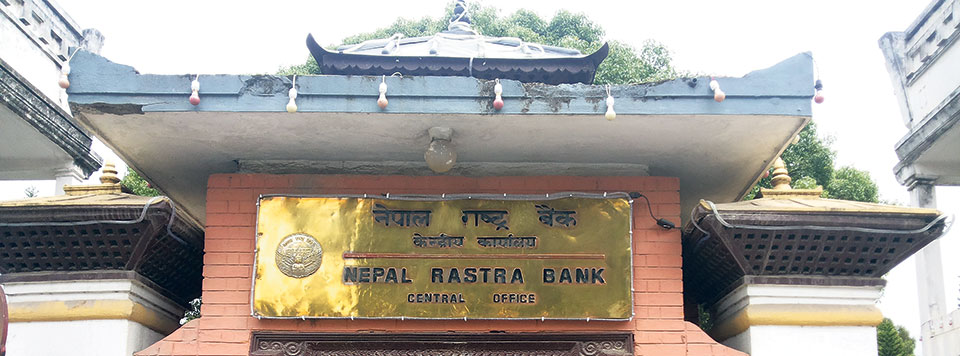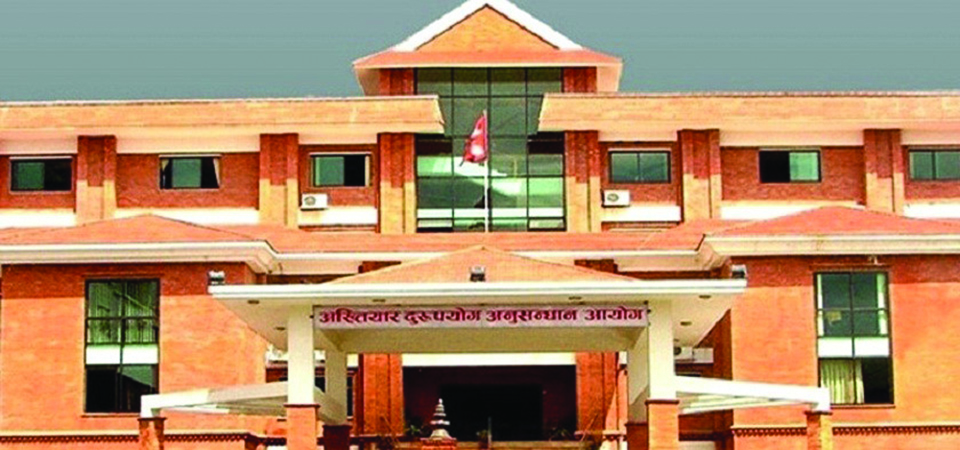
OR
Lawmakers demand government maintain autonomy of Nepal Rastra Bank
Published On: March 2, 2020 09:53 AM NPT By: Republica | @RepublicaNepal

KATHMANDU, Mar 2: Lawmakers on Sunday urged the government to remove the clause in the proposed bill of Nepal Rastra Bank (NRB) Act that will affect adversely the autonomy of the central bank.
Targeting to amend the Nepal Rastra Bank Act 2002, the government has tabled the bill at the parliament. The bill has maintained the clause that the government holds discretionary power to sack the Governor and Deputy-governor of the central bank. Similarly, the bill has maintained that the central bank will have to invite an outsider in its internal audit system.
Speaking at a meeting of the lower house of the parliament, the lawmakers opposed the provisions stating that these will hamper the autonomy of the central bank. “Provided the government will be given authority to sack the topmost positions of the apex financial organ, it will implant threat among them to work independently,” said Nepali Congress lawmaker Minendra Rijal.
Lawmaker Gyanendra Bahadur Karki said that, the NRB could work as a good regulator of the banks and financial sector and an advisor of the government only if the central bank is set free from the intervention of the government. “This will also help boost the healthy financial sector in the economy.”
Lawmaker Dibya Mani Rajbhandari urged to bar the board of directors of the NRB from taking loans from any commercial banks to prevent conflict of interest. “Likewise, there should be a provision of taking stern action against those who are blacklisted in defaulting loans,” said Rajbhandari.
The government through the proposed bill has also sought to set an upper age limit of 65 years for any person to become a board director along with the minimum age requirement of 35 years. Earlier, there was no age ceiling for nomination or appointment as the board director in the central bank.
Finance Minister Yubaraj Khatiwada on Sunday said that, the government has targeted to make the central bank more accountable along with empowering it as an autonomous body. “The autonomy without assuming accountability will give rise to anarchism,” Khatiwada said.
Khatiwada said that, the government has incorporated the age limit of the board of director citing to comply it with the retirement age set by the government. Commenting on the lawmakers concern that the bill has removed the cooling period of the executive director of the central bank, Khatiwada said that, the bill has sought to maintain the uniform cooling period of two years for all the executives of the central bank.
You May Like This

Central bank urges all to stay away from cryptocurrency and network businesses
KATHMANDU, Feb 9: The Nepal Rastra Bank (NRB) has urged one and all to remain cautious on the issue of... Read More...

Open up for business
Government should facilitate the investors, rather than adding one after another hassle ... Read More...

Central bank circular could destabilize financial sector: NBA
KATHMANDU, Aug 8: Nepal Bankers Association (NBA) has warned that some of the provisions in the recent circular of the Nepal... Read More...


Just In
- JSP Central Executive Committee meeting today
- Ambassador Adhikari presents his letter of credentials to Turkish President Erdoğan
- Bajhang by-election: Construction of Taklakot Road is common election agenda of candidates
- Meeting of Finance Committee being held today to discuss 2025/25 budget
- Stakeholders call for transparency as Beijing pushes for early implementation of BRI projects in Nepal
- Special Court orders judicial custody for Sunil Paudel over illegal wealth acquisition charges
- District Court Rautahat sentences four individuals including Aftab Alam to life imprisonment
- Class 12 exam starts today with participation of over 390,000 candidates
















Leave A Comment